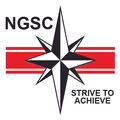
ASSISTANT PRINCIPALS’ REPORT
Mrs Julie Andrews, Mr Paul Dawson &
Mr Bradley Headlam
Assistant Principals
How parents/carers can help their child with school:
Here are some ideas that might help your child to participate more fully in their learning. (Adapted from Education Today 2017, Dennis Sleigh)
- Adult attitudes count - even if the school experience of adults closely connected to a child was not ideal this negative attitude can be easily passed to the children if we are not careful. Schools are places that will make a real difference to the future of children. Positive and encouraging attitudes can inspire everyone.
- Learning parents help children learn - any and all forms of learning that we do as adults encourages and models that learning is not just for students at school but how we live in the world. Sharing our skills or knowledge is important too: learn to make scones, learn to weld, learn a language. Learning is a lifelong pursuit.
- Read to/with/around your child - reading is a vital part of education and an essential aspect of daily life. As adults we demonstrate to children the value of reading in everyday examples but also as a reader of books. We read to younger children, we encourage older children to read independently and we read for ourselves. We can enhance their reading experience by discussing the content, characters and messages from the reading.
- Attend Parent / teacher / student conferences - these events are important in connecting with your child’s teachers and finding out more about your child’s learning successes and areas for improvement. Reading and discussing school reports with your child also demonstrates your interest in their education especially at significant times, transition to high school and as children move to senior courses requiring input about pathways.
If you would like further information about supporting your child with their learning contact a student manager or a member of the wellbeing team.
Performance Average - Progress Reports
North Geelong Secondary College uses the learning behaviours on the Progress Report to generate a Performance Average (PA) score. The aim of this program is to improve your child’s learning skills and enhance their results. The Progress Report covers your child’s performance at school over a four week block of the school year.
The areas for assessment covered by the Progress Report focuses on the following learning behaviours:
1. Attendance - The student’s attendance will be assessed based upon the following description “students are able to meet the minimum NGSC 95% attendance requirement”.
“Consistently” will be assessed as anything of 95% or above
“Usually” - 91% to 95%
“Sometimes” - 85% to 90%
“Rarely” - 80% to 84%
“Never” - 79% or lower
This information will be derived from the ‘School’ percentage column, which is accessible on the Compass portal.
2. Preparation/Organisation – required materials – “The student is able to bring the required textbooks, writing materials, exercise books, electronic device that is charged for use and any other relevant materials to class”.
3. Participation in class – “The student is prepared to apply themselves diligently to all set tasks, to participate positively in class discussions and to endeavour to attempt all tasks to the best of their ability”.
4. Respect to peers and staff – “The student is able to respectfully interact with peers and staff in all classes. They are able to follow all instructions, interact politely with fellow class members”.
5. Homework – “The student is able to complete all set homework and catch up on any work that is missed from classes whilst absent (students must be proactive in sourcing this missed work)”.
6. Achievement – “The student is progressing towards meeting the expected level of the relevant outcome or standard”.
You will notice on your child’s Progress Report that each learning behaviour is marked 'consistently', 'usually', 'sometimes', 'rarely' or 'never' and for each of these levels of performance a corresponding value 4, 3, 2, 1, 0 is provided.
Four (4) is the maximum PA a student can receive. From a student and parent point of view, the expectation is that every student should be aiming at receiving a PA greater than 3.5. The PA data identifies students performing well and also those in need of extra support. Students receiving a PA below 2.3 are monitored carefully and provided with support to help them get back on track with their learning. The PA may be used for promotion purposes. Students who receive an average PA score of 2.0 or below for the year will be in jeopardy of non-promotion.
It must be noted that the PA is a reporting mechanism where students' levels of effort and application to their studies are measured irrespective of their level of academic ability. The implementation of PA will provide a framework whereby teachers, families and students can work together to promote positive learning habits and behaviours.
Access to the Progress Reports is available on the Parent Portal. Contact the school if you need to refresh login details. If you have any further questions about the Performance Average please contact your child’s Year Level Coordinator.
Semester Reports
Staff are currently completing the end of semester reports. These highlight student progress against the expected standard. In the reports you will find ratings against the Victorian Curriculum standards, Learning Task and exam results.
These will be published in the last week of term and available via Compass.
Cyber Safety
Next week the Year 8 Level and Year 9 Level students will each attend a session about cyber safety. Robert Noggler from Western Division Police Youth Resources will run the presentation. This is a police run presentation where Robbie will talk to the students about the do's and don'ts of bullying online. Due to a number of incidents across year levels involving bullying and social media, this presentation is aimed to curb some negative behaviour in this area and remind the majority of the students how to manage their safety online.
Here are some links to sites that support and inform parents about online safety for their children:
Department of Education - Bully Stoppers Program https://www.education.vic.gov.au/about/programs/bullystoppers/Pages/parents.aspx
Parents Cyber Safety Toolbox https://esafety.gov.au/parents
Cybersafety Help https://www.esafety.gov.au/esafety-information/get-help
For kids
https://kidshelpline.com.au/kids/
For teens https://www.esafety.gov.au/about-the-office/research-library/aussie-teens-and-kids-online
Pathways
Year 9
In the last weeks of term Year 9 students will be participating in an introduction to their pathways planning for 2020 and beyond. This will include a trial of The Morrisby survey and other introductory activities. The second stage in the process will begin in week 4 Term 3 and will see students completing the survey.
Year 10
Students in Year 10 will be participating in their careers program in week 3 of Term 3.
The school would like parents to be extensively involved in this process and assist their children in making subject choices that suit their career needs and interests. A timeline is in the process of currently being established that will assist in the organisation of a very important time for these students. They need to make sure their decisions are informed and they seek guidance from teachers, parents and potential employers.
All details of pathways programs will be shared via various forms of correspondence!
WHY WE SHOULD NOT BE LATE!
Below are a number of reasons why it is important not to be late to school.
Organisational Benefits
Students arriving to school with time to spare have the luxury of settling in, preparing their class materials and focusing their minds on the lessons to come. They have all the time they need to literally and figuratively wake up. Students showing up to class in the middle of a lesson miss out on this natural transition period. This ultimately contributes to the lower grades as a consequence of missing time in the classroom. There are studies that show if you are not in class you do not learn.
Never Miss Important Information
Arriving to school after classes have begun can cause students to miss more than just an introduction to a new lesson. Students who show up late may miss out on these details and as a result, be unprepared for some future class event. While a teacher will likely reiterate crucial information throughout the day, latecomers may miss out on courtesy reminders about homework assignments and other projects. High school students who show up on time everyday can rest assured they have all the necessary information.
Develop Positive Lifelong Habits
Arriving late to school on a consistent basis can have longer-term academic effects. If showing up late to school becomes a habit, students may develop the notion that tardiness is acceptable behaviour. This belief can negatively impact their future work ethic and employment opportunities. Alternatively, showing up on time to school every day can help students develop the habit of being punctual with important commitments. This habit can serve high school students well through University and into their future careers.
Disciplinary Consequences
North Geelong Secondary College has specific consequences concerning student lateness. Generally, these policies allow for the occasional late arrival; rare instances of excused tardiness throughout the school year are often forgiven. Students sometimes have legitimate reasons for showing up late, such as transportation problems and doctor’s appointments. These events are considered to be "excused absences." However, after reaching a predetermined number of unexcused absences, students may be put on a structured disciplinary plan to address any further late arrivals. Depending on their continued infractions, students may be issued lunchtime or after-school detention, or even suspension.

